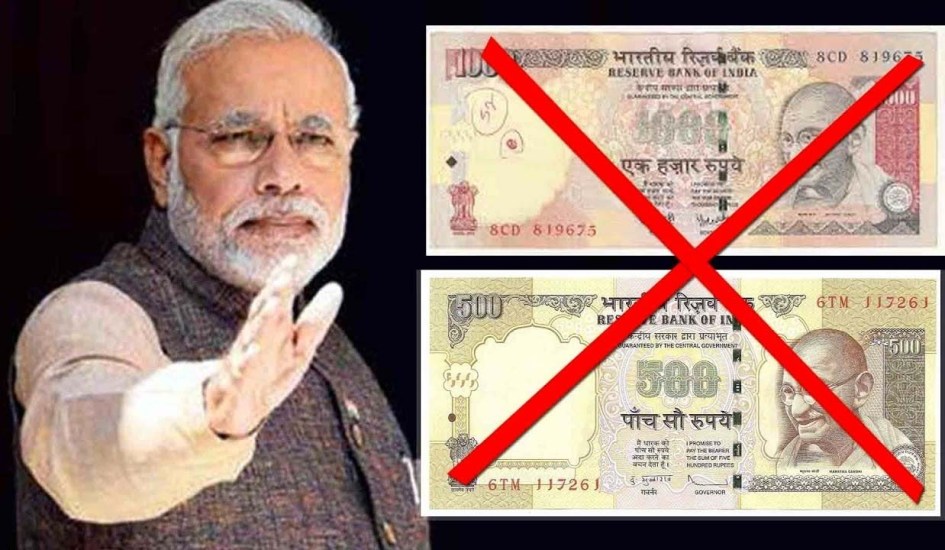It has been three years since Modi government demonetized high value (500, 1000) currency to fight against corruption and black money. In the last three years, demonetisation has polarized the people like never before. On one side, there were people ready to suffer and cooperate with government in ‘nation building’ efforts while on the other there were people who vehemently criticized the ‘draconian’ move.
Several assessments of the monumental steps have been carried out with different ideological extremes but there were also saner and objective voices. Here we have analysed the few fundamental changes demonetisation brought in the society, business culture, and macroeconomic orientation.
Demonetisation was a shock to black money accumulators and therefore corrupt political parties like SP, NCP were crying the loudest about the follies of demonetisation. The poor and middle class Indians believed in PM Modi and got in line to exchange the newly monetized notes with older ones.
The monumental step proved a big blow to shell companies, made India a more tax compliant nation and, culture of digital payments was inculcated in the society.
Due to demonetisation, thousands disclosed their black money and paid the taxes imposed by the government. As per the government data, “3.04 lakh persons who deposited cash of Rs 10 Lakh or more but had not filed their return of income till the due date of filing returns were identified and, 2.09 lakh such identified non-filers responded. These persons paid self-assessment tax of Rs. 6,531 crores.”
The direct tax collection grew exponentially in post demonetisation period. Growth in direct tax collection in 2015-16 and 2014-15 were only 6.6% and 9.0%, respectively but it rose by 18 percent in 2017-18, which was highest in seven financial years before it.
In FY 18, personal income tax Advance Tax collections increased by 23.4% and Self-Assessment Tax by 29.2%. In FY 2018-19, Corporate Tax clocked a growth rate of 16.2% and personal income tax of 12.7%.
Since long, paying taxes was considered stupidity by the business class and the wily CAs were always ready to make a hold in government coffers. But after demonetisation, the tax net of the country widened in double digits.
In FY 2017-18, 6.86 crore ITRs were filed with the Income Tax Department as compared to 5.48 crore ITRs filed during FY 2016-17. This showed a stupendous growth of 25% which was best growth rate achieved in the five years before FY 2017-18.
In FY 2017-18, the number of new ITR filers increased to 1.07 crore, compared to 85.51 lakh new ITR filed during FY 2016-17, a growth of 25%.
The corporate tax compliance also increased like never before in post-demonetisation period. In FY 2016-17, 8.01 lakh returns were filed by corporate taxpayers while the number of returns was 9.38 lakh in FY 18, a growth of 17.2 percent. This growth rate is more than five times higher than the growth rate of 3.0% in 2016-17 and 3.5% in 2015-16.
Demonetisation has decreased the growth rate of note circulation significantly while digital transaction multiplied even faster than value, showing a broad basing of digital payments even for smaller payments. In June 2019, these were 2,368.72 million (184% more) and Rs. 143,378.42 billion respectively (60% more) compared to the volume and value of digital payments transactions were 833.18 million and Rs. 88,933.35 billion respectively, in November 2016.
The notes in circulation as on November 4, 2016 were Rs. 17,741.87 billion and it had grown at an average growth rate of 14.51% year on year since October 2014. At this rate, notes in circulation would have increased to Rs. 25,122.53 billion as on May 31, 2019. However, it increased only to Rs. 21,713.85 billion as on May 31, 2019 (almost 20% lower than would it would otherwise have been).
Therefore, one may argue economic growth slowed by few percentage points in short term- due to twin effect of GST and demonetisation, which were implemented in less than a year gap, it also fundamentally changed the business culture in the country. Demonetisation made the economy transparent and improved business culture, GST in formalizing the Indian economy.
